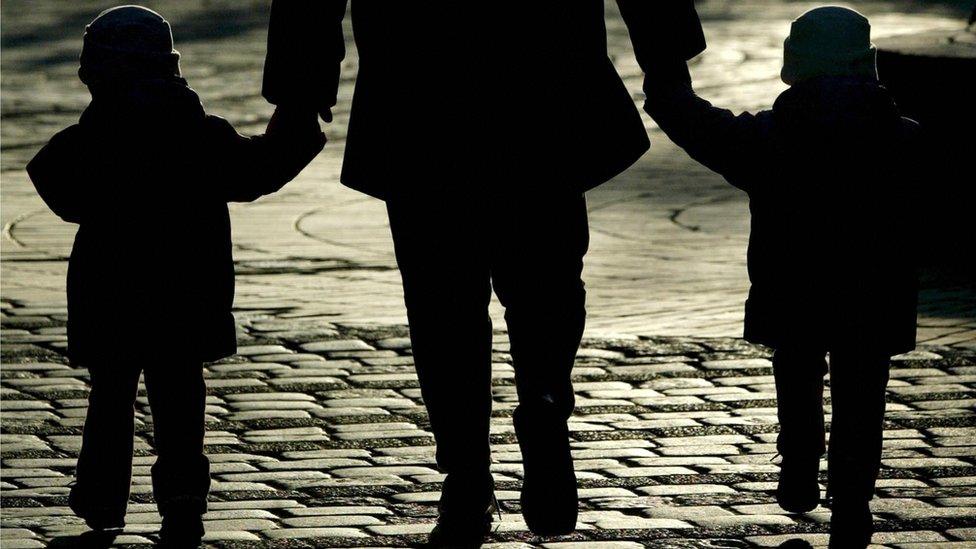Poor children 'more likely to be in care'
- Published
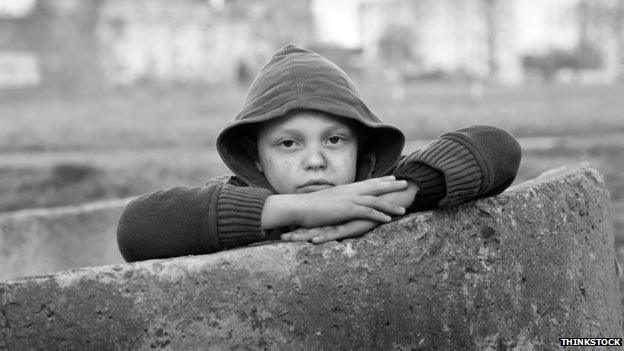
Child poverty is forecasted to increase by about a third by 2020
Children living in the poorest areas are at least ten times more likely to be taken into care or put on a child protection plan than those from the wealthiest areas, a study finds.
The Child Welfare Inequalities project concludes deprivation is the largest single factor in families becoming involved in child protection.
It scrutinised decisions made by social work teams in the four UK nations.
Poverty was often "taken for granted" among the families they saw.
Many staff reported feeling overwhelmed by the complex needs some families had.
Professor Paul Bywaters from Coventry University led the research -funded by the Nuffield Foundation -and described the study as "holding up a mirror to the child welfare sector."
The research found about one child in every 60 was in care in the most deprived parts of England, compared with one in 660 in the most affluent places.
The study also found that there were fewer services which could intervene early to support families, particularly in the most deprived areas.
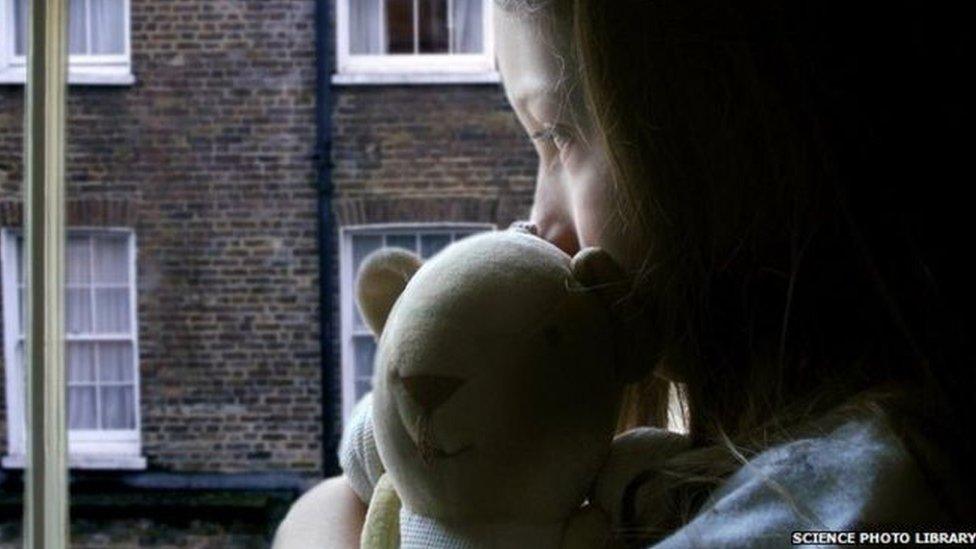
Prof Bywaters said local authorities were dealing with cuts to their budgets at the same time as the number of families needing help was increasing, and more children were being taken into care.
"What's happened against the background of those cuts is that a larger proportion of the money that local authorities spend has gone on looked after children, and that has eaten further into the money for supporting families.
"So that balance between identifying risk and supporting families has tilted further under austerity."

A mother's story
Annie had four of her five children taken into care after she had a breakdown.
She fought to get them back and now writes a blog to help others navigate the child protection system.
She believes if she had had help to deal with the financial pressures she was under, it would have made a huge difference.
"When you have to chose between putting gas on the meter or eating, which I've had to do, it's difficult for you to imagine, if you haven't been t here you can't possibly understand the pressure of that" she says.
"If you then have somebody come in judging that action or judging your parenting, it is like a pressure cooker... waiting to explode."

The Association of Directors of Children's Services in England, which represents those who run council child protection services, warns budget cuts, increasing demand and record numbers of children in care mean their ability to step in and prevent problems within families from escalating to a crisis, is in real jeopardy.
Dave Hill, president of the ADCS, said: "The impact of austerity is now all too visible in our communities, particularly the most deprived, record numbers of children coming into care and their needs are increasingly complex. Poor parental mental health, substance misuse and domestic abuse is sadly becoming more common amongst the families we work with."
He said the government must work with them and the researchers to look at the issues the study raised.
"With further reductions in local government funding expected in the forthcoming budget and fundamental changes to our financing on the horizon, time is of the essence in tackling this most vital of social issues before it's too late."
A Department for Education spokeswoman said: "We want to make sure every child has the best possible start in life.
"We are changing the law to strengthen protections for vulnerable children, give them greater support in school to help support their educational attainment and help them as they prepare to leave the care system and enter adulthood.
"We are also tackling inequality by targeting twelve social mobility 'coldspots' across the country, backed by £72m funding.
"These 'opportunity areas' will see government working with schools, colleges, local authorities and businesses to overcome the barriers to social mobility and make sure young people from all backgrounds can go as far as their talents will take them."
- Published8 August 2016
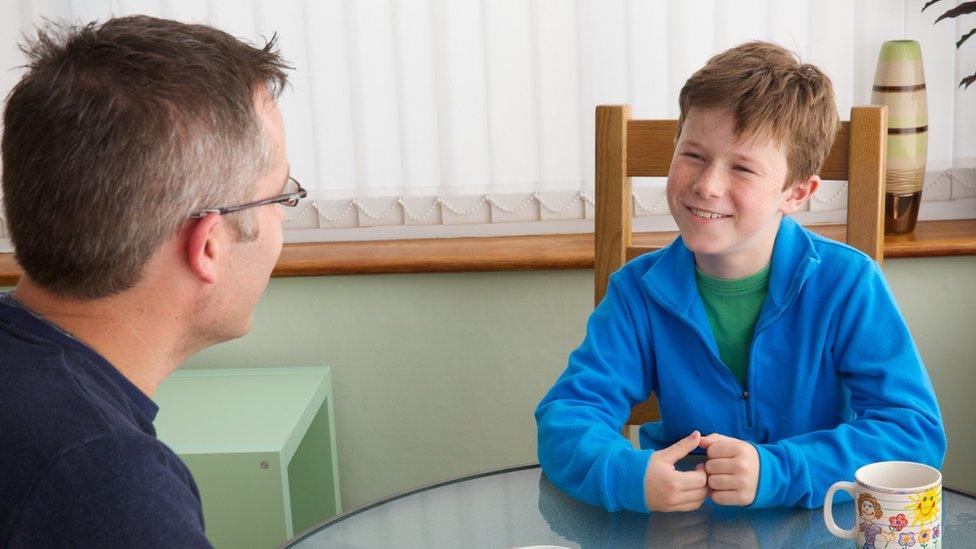
- Published4 October 2016
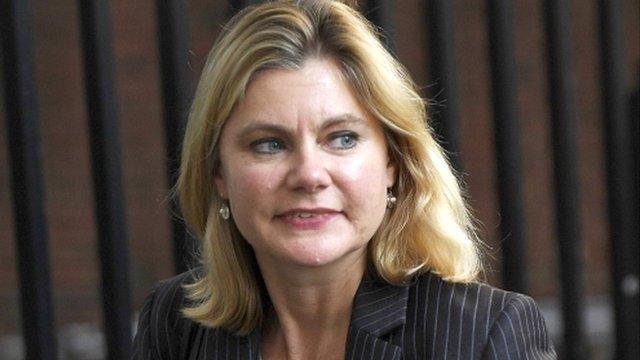
- Published15 November 2016
